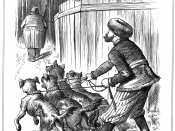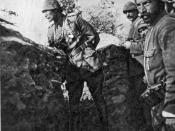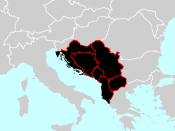1. INTRODUCTION
The Balkans have always played a significant role in Turkish foreign policy and Turkey has always been an important political actor in the region. The Ottoman Empire ruled the peninsula for more than five centuries. While receding from the Balkans, it left behind substantial Muslim communities and minorities of Turkish origin. A strong sense of affinity exists between the peoples of Turkey and the Balkan countries, which in effect mirrors Turkey's close interest in the region. Geographically, the Balkans are located in the area that connects Turkey to Europe. Approximately two and a half million Turkish citizens live in Western Europe, which also accounts for more than half of Turkey's foreign trade. Moreover, with Turkey's bid for European Union membership, the Balkans have gained a particular meaning. The Turkish state will continue to be sensitive to any major changes in the region as they will have immediate effects on Turkey's long term interests in Europe.
The Balkans have been a fertile ground for conflicts and wars that have characterized the fundamental change in the political and security environment in the peninsula during the post-Cold War era. The collapse of communist regimes and the dissolution of the Yugoslav and Soviet federations brought sudden, drastic implications in the region. At the beginning of the 1990s, Turkey found itself in a totally altered, and volatile geo-political environment. Ensuring regional peace and maintaining stability in the Balkans became essential for Turkey's security and gave rise to active and high profile Turkish diplomacy.
The Yugoslav crisis constituted the greatest challenge for European security since World War II. It influenced the restructuring of post-Cold War security relations and complicated the European Union's development of a Common Foreign and Security Policy (CFSP) and search for a new role in international affairs. The EU had fairly...


